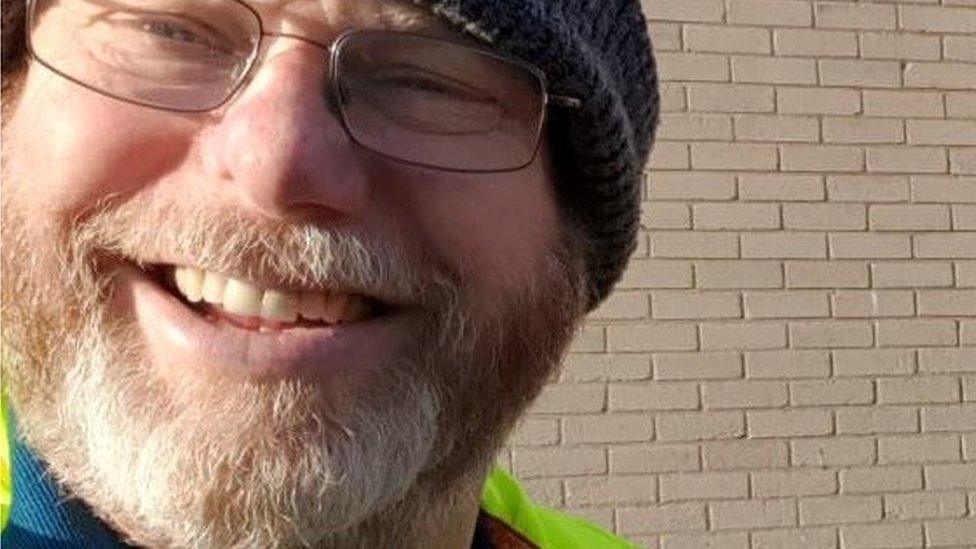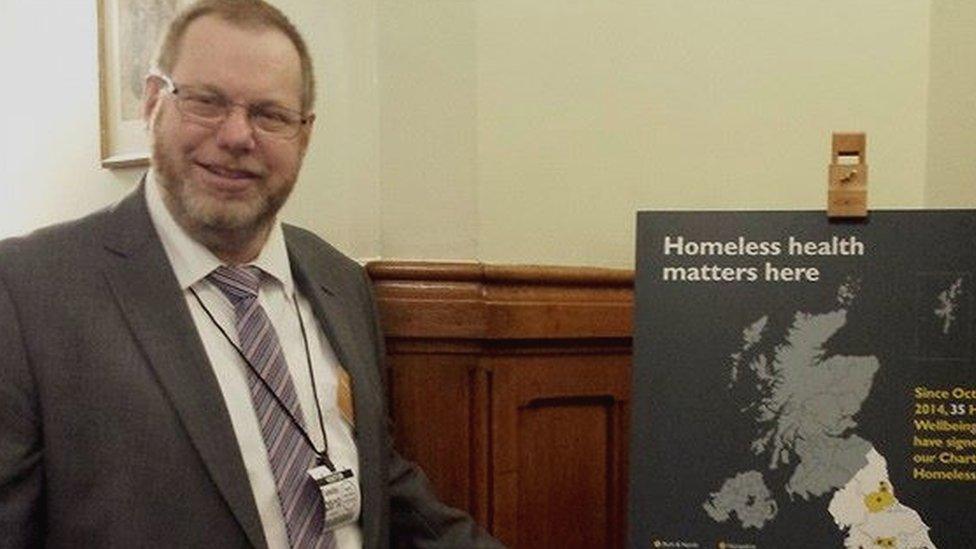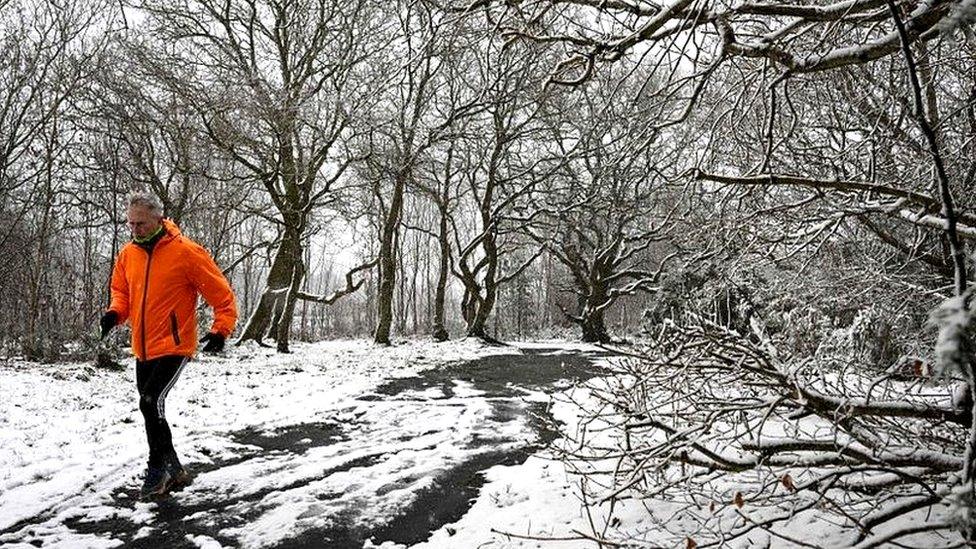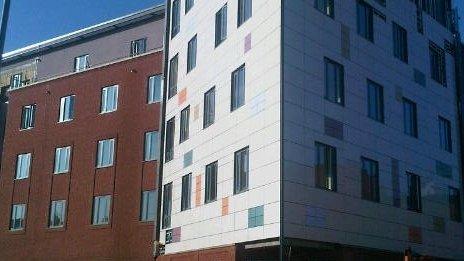Coventry hostel worker calls for night shelter return
- Published

Nobby Clarke said he believed Coventry was "relatively ill-prepared" for the cold spell
A man who helps rough sleepers in Coventry has called for a night shelter to reopen this winter.
Nobby Clarke said two shelters able to each accommodate 20 people had not reopened since the Covid pandemic.
He said the provision of 12 emergency beds was insufficient and last winter "descended into a very expensive chaos" with some people put up in B&Bs.
The city council said the two night shelters were needed at the time but its approach had "moved on".
Mr Clarke retired from West Midlands Fire Service in 2009 and began running a night shelter in 2013 through his work as a church warden.
He said rough sleeping in the city was a "complex" issue and included people "not in view" who slept on friends' or relatives' sofas some of the time.

Coventry Emergency Shelter, pictured in 2019, provided 20 beds
He felt night shelters were the best place to help "rehabilitate" people, once their basic needs of food and warmth were met.
The 12 emergency beds at the Salvation Army's Lifehouse in Harnall Lane West are available when the Severe Weather Emergency Protocol (SWEP) is activated but Mr Clarke said on the "worst night" last year 45 people turned up.
"Last winter descended into a very expensive chaos where they [the council] rejected once again night shelters and set up some form of shelter at the Salvation Army and any overflow was catered for with taxis and bed and breakfast as far away as Walsall," he said.
Based on anecdotal evidence, he estimated about 80 people could be regularly sleeping rough in Coventry.
'Positive step'
He believed there would not be "enough" emergency beds based on last year's numbers.
David Welsh, Coventry City Council cabinet member for housing and communities, said SWEP was activated on the first night temperatures "feel like zero" which was above the minimum requirement of three nights of low temperatures.

Nobby Clarke said the former Coventry Emergency Shelter worked well and helped rehabilitate people in need
He said "known rough sleepers" could stay at the Lifehouse while there would be a "warm space" available for others.
"So people won't need to be on the street in freezing cold weather," he said.
Mr Welsh said an outreach team went out five days a week checking on rough sleepers.
"We know the people that are out there and the people we don't know we get to know them and we get them into accommodation and that's what has changed and it's a positive step," he said.
Mr Welsh said the people who were accommodated in B&Bs last year were "the exception" and most did not need help again.
"If you are worried about somebody and see them on the streets tell them to go to Harnall Lifehouse and they will be supported," he said.

Follow BBC West Midlands on Facebook, external, X, external and Instagram, external. Send your story ideas to: newsonline.westmidlands@bbc.co.uk
Related topics
- Published28 November 2023

- Published17 January 2012
